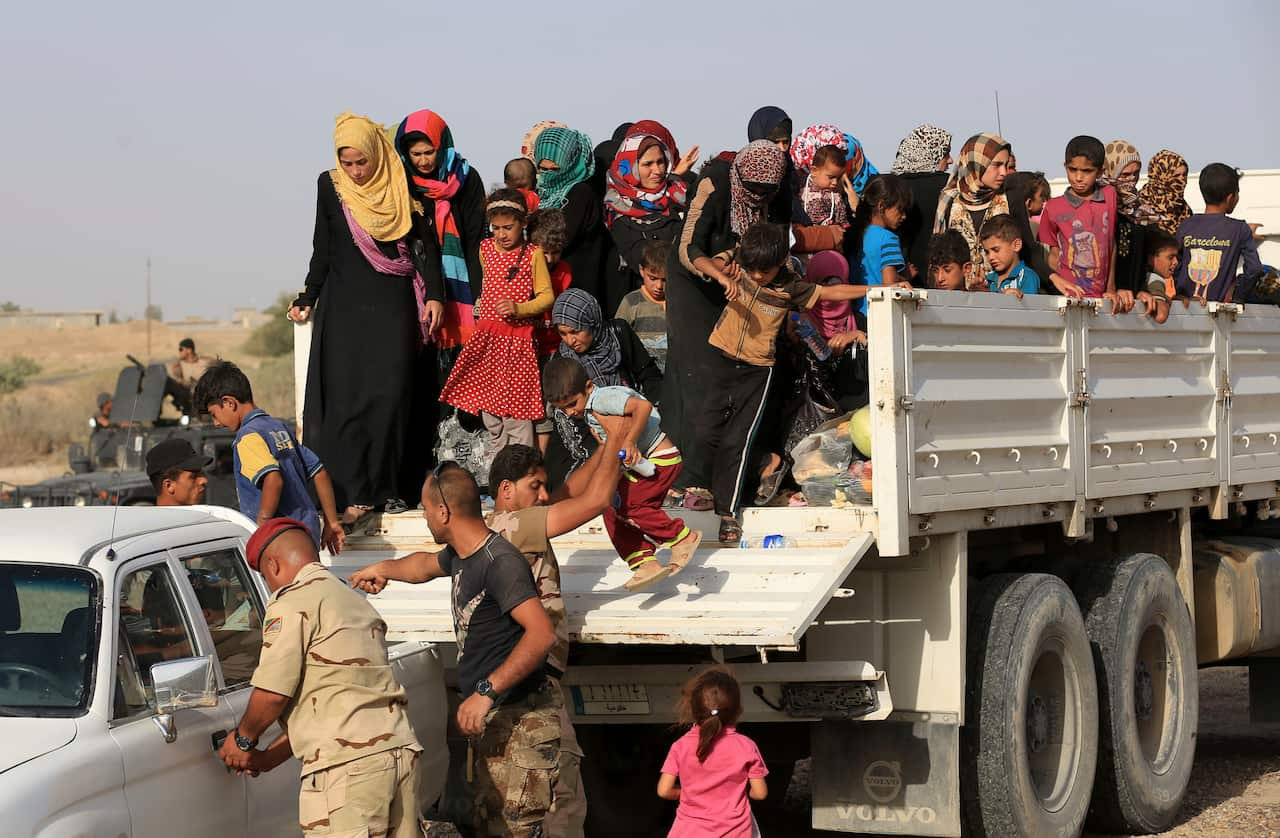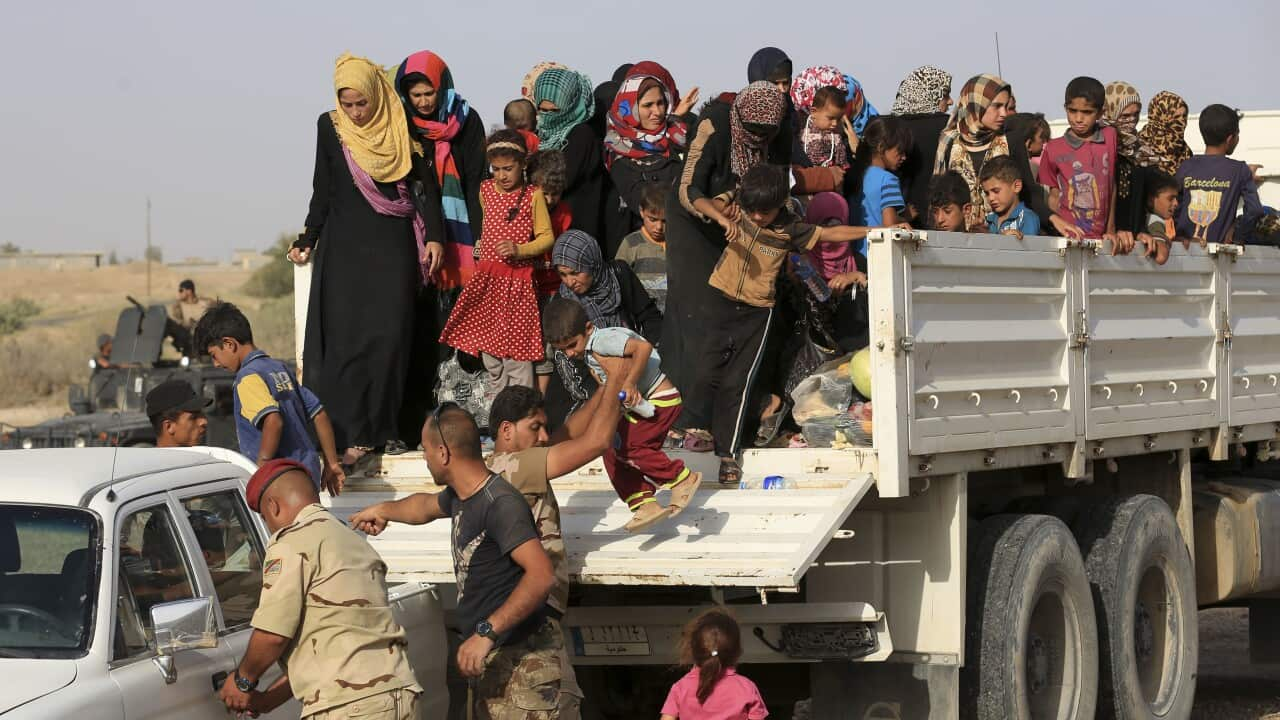Tens of thousands of civilians escaped the city, just 50 kilometres (30 miles) west of Baghdad, on the back of a major advance that saw Iraqi forces thrust into central Fallujah in recent days.
The humanitarian community has been struggling to cope, with thousands of people already suffering from hunger and trauma now stranded in the scorching summer heat with no shelter.
"The estimated total number of displaced from Fallujah in just the last three days is now at a staggering 30,000 people," the Norwegian Refugee Council said. The UN refugee agency (UNHCR) said up to 84,000 people had been forced to flee their homes since the start of the government offensive against the IS bastion nearly a month ago.
The UN refugee agency (UNHCR) said up to 84,000 people had been forced to flee their homes since the start of the government offensive against the IS bastion nearly a month ago.

Source: AFP
"Agencies are scrambling to respond to the rapidly evolving situation -- and we are bracing ourselves for another large exodus in the next few days as we estimate that thousands more people remain trapped in Fallujah," the UNHCR said.
"We implore the Iraqi government to take charge of this humanitarian disaster unfolding on our watch," NRC's Iraq director Nasr Muflahi said.
NRC said it could no longer provide the required assistance, with water rations drying up fast.
It cited the case of a newly opened camp in Amriyat al-Fallujah, south of Fallujah, that houses 1,800 people but has only one latrine for women.
"We need the Iraqi government to take a leading role in providing for the needs of the most vulnerable civilians who have endured months of trauma and terror," Muflahi said.
An Iraqi aid worker employed by the government at a camp in Amriyat al-Fallujah said the resources were inadequate to deal with the scope of the crisis.
"Four hundred families have reached my camp in the last four days, they don't have anything," said the camp manager, speaking on condition of anonymity.
"We were shocked by the number of displaced people and we weren't prepared to receive them," he said.
"We secured tents for some of them but the rest, including women and children, are sleeping on the ground under the sun," he said. "Their situation is a tragedy."

Iraqi soldiers help families from a vehicle outside an Iraqi army military camp near Fallujah after being displaced on Friday, June 3, 2016 Source: AAP
Sniper fire
The temperature in Baghdad has been hovering above 40 degrees Celsius (104 Fahrenheit) and it often gets hotter in Anbar province, where inhabited areas along the Euphrates River are flanked by desert.
Prime Minister Haider al-Abadi has promised to support the displaced.
On Friday evening, after Iraqi forces raised the national flag above the main government compound, he declared Fallujah had been "brought back to the fold."
Yet Iraqi forces have some work left to do, with hundreds of IS fighters still holed up in the city's northern neighbourhoods.
Abadi announced the liberation of Ramadi, the capital of Anbar, in December but the area was not brought under control until February.
Sporadic IS attacks there have continued, the latest of which was a thwarted ambush on the top military commander for Anbar Sunday in an area called Zankura.
Despite facing less resistance than expected from IS in Fallujah, an emblematic jihadist stronghold, sniper fire, car bombs and booby traps remained a risk for Iraq's forces.
"Our forces are cleansing central Fallujah of pockets of Daesh (IS)," federal police chief Raed Shaker Jawdat told AFP, using an Arabic acronym for the jihadist group.
In the Officers neighbourhood of Fallujah, IS snipers shot at an Iraqi flag pole until it broke, an AFP photographer reported.
The loss of Fallujah would continue a losing streak for IS that already leaves the "caliphate" it proclaimed two years ago looking moribund.
To keep the pressure on the jihadist organisation, Iraqi forces also rekindled offensives east and south of Qayyarah in the north of the country.
With its strategic location west of the Tigris and its air field, Iraqi forces hope to make it a key launchpad in a major push to retake Mosul.
Abadi vowed on Friday that Mosul, the country's second city and IS's last remaining major urban hub in Iraq, would be liberated "very soon".
Share


